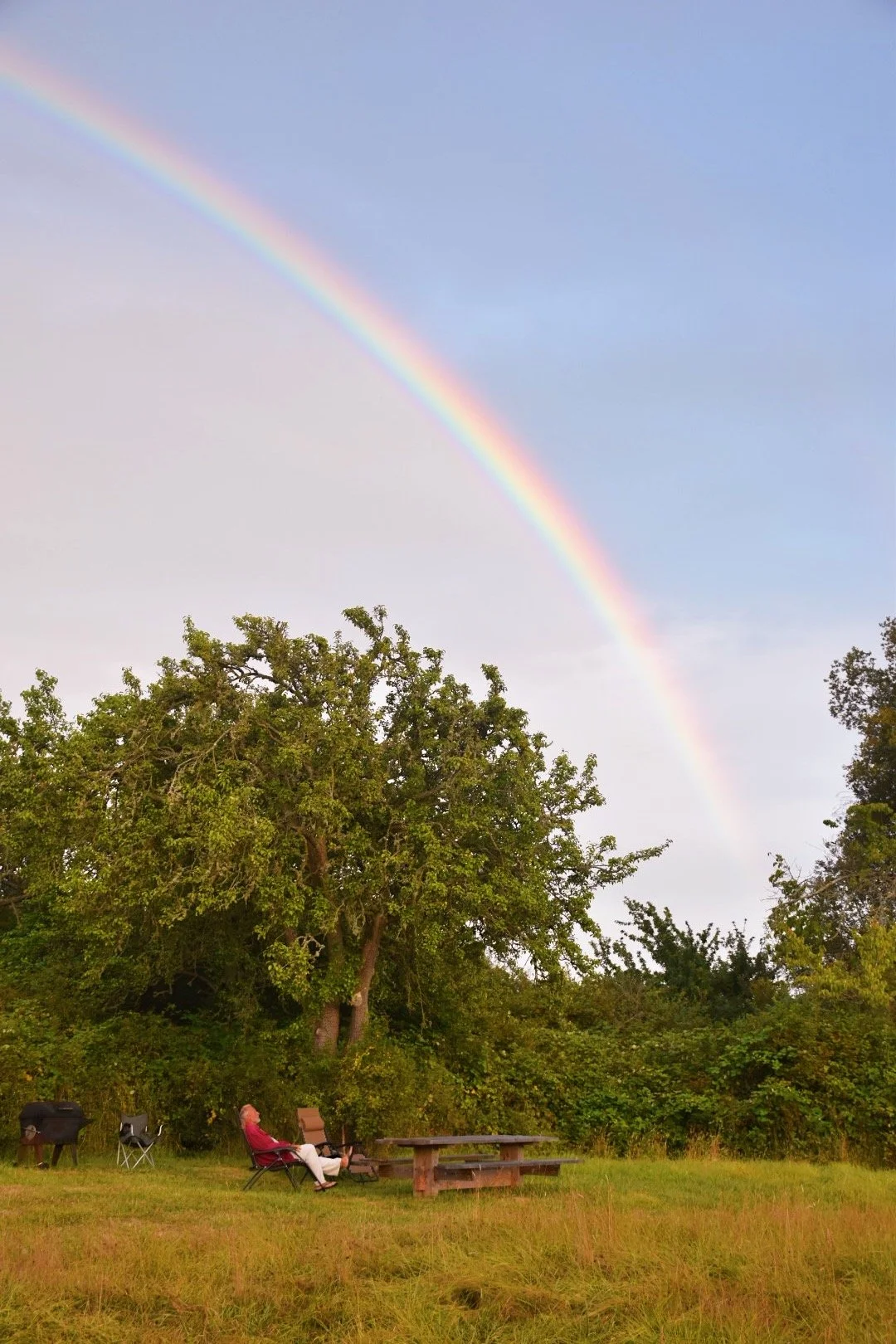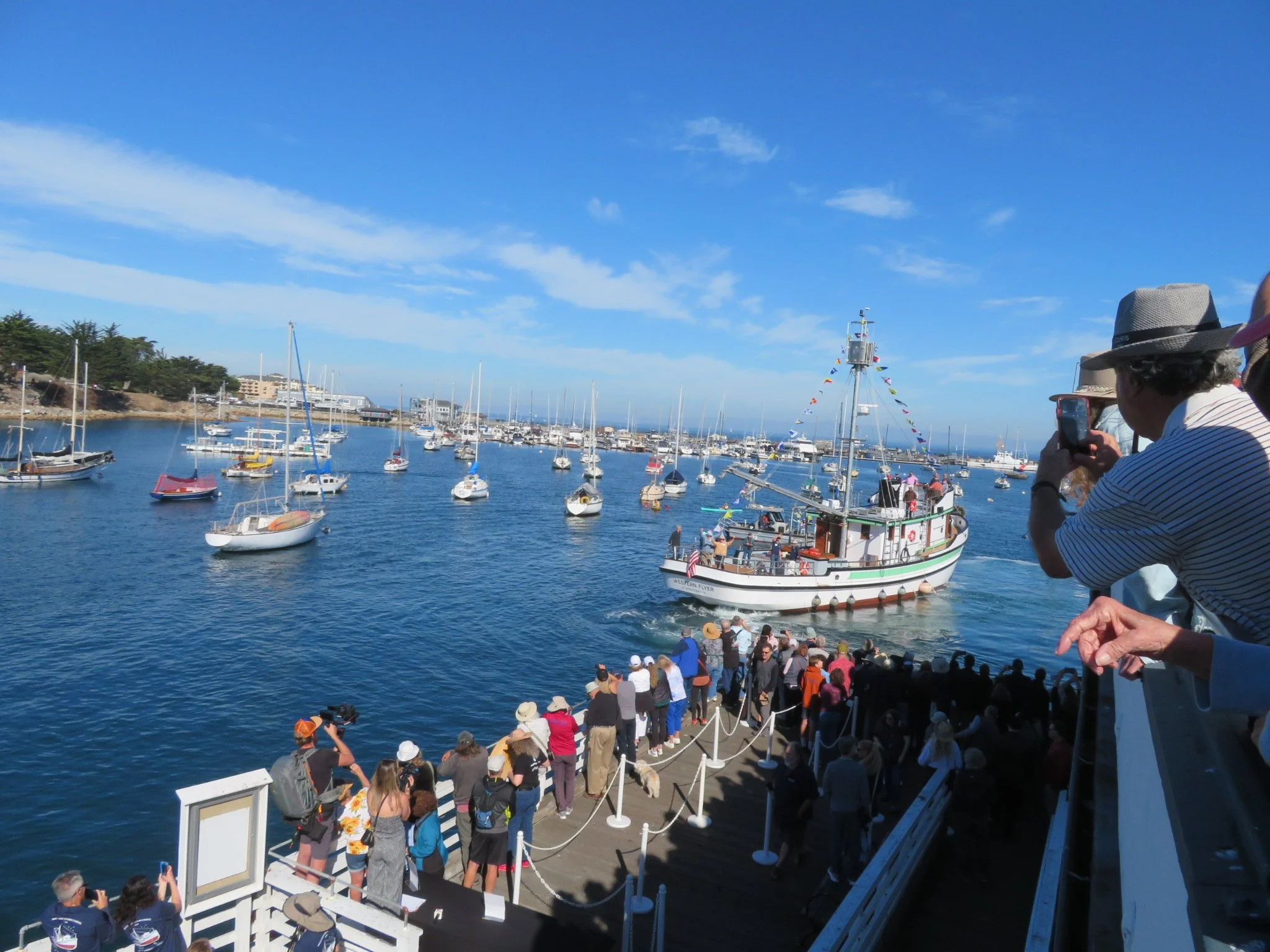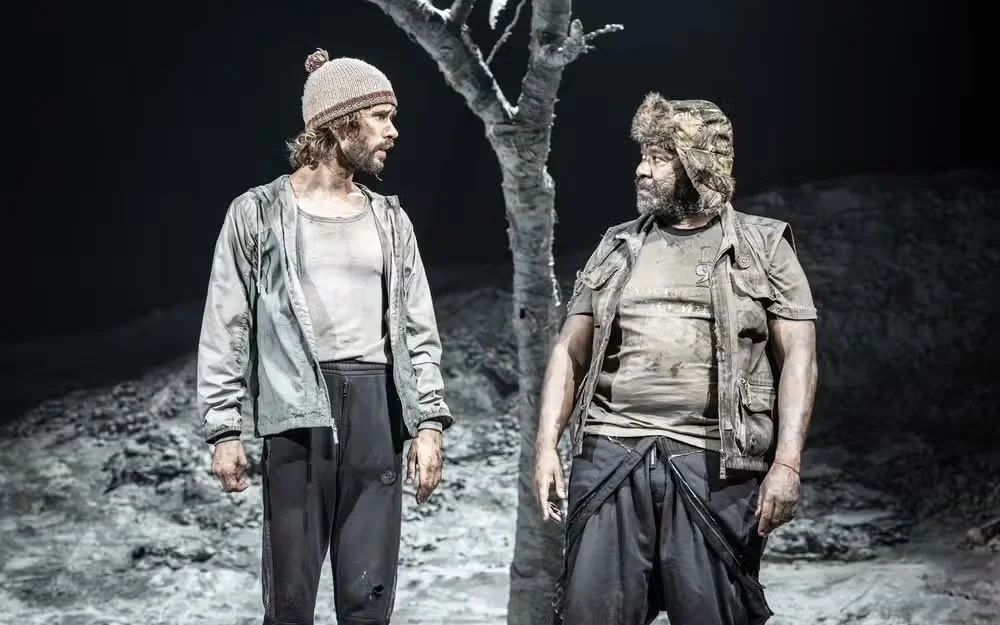Forty Years
I was almost dead.
"So, you woke up in the ICU, right?" The Fort Collins paramedic raised her eyebrows at me, as if apologizing for reviving unpleasant memories.
"Yep. Handcuffed to the gurney, actually," I replied, six months after the fact.
"Kind of sore on your breastbone?"
"Extremely."
"That's because we thought we were losing you in the ambulance. So we take our knuckles and rub—really hard—on your breastbone. The pain keeps you from slipping away," she explained.
"I guess it worked," I offered, laughing.
How is that funny?
Almost anything's funny when you have come within minutes of death, which I did long ago in my old home town in northern Colorado. After downing buckets of booze and piles of pills and (barely) failing to die, then spending a week locked up in a psych ward, then five weeks in a famous drug treatment center in the high Rockies, I had returned home to write a newspaper column about starting the lifelong path of addiction recovery. Back then I did not know it would be lifelong. I couldn't see into next week. Now, 40 years later, I ain't dead yet, as smart-ass middle age white guys like to say.
Forty years ago the paramedic who saved me wanted to come by my office, have a cup of coffee and tell me she had faith in me. So she did. The colorful details of my last alcohol/drug episode are, in retrospect, like flowers almost bloomed out but still meaningful, ready to spread seeds as far as the wind will take them.
Forty years later, I don't know how far the seeds have blown. I don't know if the outcome may have been different with a different paramedic, a different treatment center, a different backstory and future-story, a different set of friends and lovers, a different gene pool… It's all existentially meaningless muck in which I don't wade because it is a detour from the basics: Don't drink or drug, work the program, progress as best I can.
I've been doing that a long, long time. When I started, Ronald Reagan was president. He's dead now.
I've had so much help along the way. Forty years ago, my friend and mentor David Neenan had me join his family at my first sober Thanksgiving. Today is the anniversary of that kindness. A few weeks before that, my friend Curt Smith offered his family's guest bedroom when I got home from treatment, so I'd not be alone my first night out of treatment.
Before all that, my Dad came home early from a business meeting in Beijing (yes, really) to bring me from the hospital to Harmony, the treatment center in Estes Park. After I started my new life, the owners of the newspaper I edited, John and Connie Pfeiffenberger, gave me work and support and compassionate friendship. Today, my wife Nicole is both loving and wise in her support.
Forty years on, I still marvel at the accidental circumstances of it all, and the unmitigated catastrophes that alcohol and drugs still wreck human life with. People still die daily. Many thousands. Their families still spend decades in despair. Alcohol and drugs kill more people than Covid—more than any other Earthly pathogen—but humankind continues to look the other way. Pick up almost any newspaper or magazine (the Seattle Times employs a reporter whose only job is to glorify booze), look at any general news website, turn on your TV, and there's the day's paean to booze and drugs. Now the drug industry is trying to cook up ways to fix the drug problem by using—Surprise!—drugs. Entire cities and states are tying themselves in knots to address the issue, mostly because it annoys them. It's the Black Plague of modern life.
My own path has been enlivened by meretricious morons, often medical ones. I was thrown out of a hospital for refusing intravenous opiates. Chefs tossed me from their restaurants when I refused to eat food cooked in wine. A dentist told me I had to use alcohol mouthwash; I told him to piss off. A dozen years ago a much stupider paramedic than my original angel tried to stick a morphine needle in my vein; I said I was going to stick it in his eye.
Harsh? I don't care. I ain't dead yet.
"Eric, did you ever figure out why you drank?"
The most dangerous question of all, one I have heard countless times. As soon as an addict has supposedly figured out "why" he drank, he'll think he has the whole thing under control and now he can safely pick up a bottle.
The answer is, it's irrelevant.
So many things don't matter once you put down the bottle and the pills. Why did I live? Why have I kept on living, clean and sober for two generations now? Why did I drink and drug in the first place? Is it genetic? Cultural? Familial?
I don't know. I don't want to.
We are all given a life urge, and the opportunity to squander it or nourish it. No one on this planet knows much more than that.
"Don't wait for the Last Judgment. It takes place every day," said my favorite philosopher, Albert Camus. And that's how you stay clean and sober—it takes place every day.
My Triangle Review addiction treatment column 40 years ago was meant to pose the idea that help is out there, recovery is possible, drugs and alcohol are death masquerading as fun, and I hope someone else might hear the message. In fact, several people did, started their own path to freedom, and let me know.
Forty years later my message to myself is, keep on truckin'.
My message to everyone else is, there's help to be found. Real help. Just ask.
Let's all give thanks for that.
Lifelong journalist and editor Eric Lucas lives on a small farm on an island north of Seattle, where he grows organic hay, garlic, apples, corn and beans. To sign up for Eric’s blog, email him at ericplucas@yahoo.com. Learn more at TrailNot4Sissies.com.




